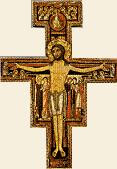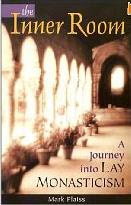According to the Rule of St. Benedict, a monk must flee the world to seek God because the world poses obstacles in the search for God. The monastic life is a renunciation of one’s will, the place to do spiritual combat for Christ so that one may strive for the Kingdom of heaven.
Monks sought to live the ‘life of the angels’ through the work of continuous prayer that anticipated life in the heavenly Jerusalem. For Benedict, ‘nothing is to be preferred to the work of God’ (Rule, 43.3).
Monastic life has a strong eschatological dimension, a desire for heaven and union with God. The monk strives for the Jerusalem above, the place where far from the world and from sin, one draws close to God, the angels and the saints who surround him. Here on earth, a monk’s life anticipates the life of heaven where the angels already enjoy the vision of God.
Gregory the Great held that the contemplative life is the heavenly life, which cannot be lived perfectly ‘in this world.’ Contemplation is given to monks so that by purity of heart they may anticipate the incorruption of heaven. Gregory claimed that the contemplative life is superior to and better than the active life and thus should be preferred to the active when possible.
For monastic spiritual writers in general, contemplation could only be attained in the monastery because it anticipated union with God in heaven. To strive for such union required listening in silence and solitude, being alone in the presence of the transcendent One. The busy marketplace of the world with its sinful practices hindered the search for union with God.
It is no wonder that, up to the 13th century and the rise of the Franciscans, contemplation for the ordinary Christian was unthinkable. Few were believed to have the grace of this pursuit. With the rise of Franciscan evangelical life, a new path to salvation emerged in the quest for God. Next...Francis of Assisi
Subscribe to:
Post Comments (Atom)











No comments:
Post a Comment